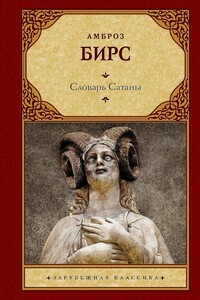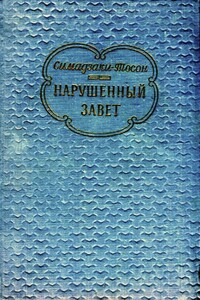Best Short Stories | страница 44
Often and often, in dining out, I looked for him, sometimes accepting invitations on purpose to multiply the chances of my meeting him. But always in vain; so that as I met many other members of the casual class over and over again, I at last adopted the theory that he always procured a list of expected guests beforehand and kept away from the banquets which he thus learned I was to grace. At last I gave up hope, and one day, at the end of three years, I received another visit from his aunt. She was drearier and dingier, almost squalid, and she was in great tribulation and want. Her sister, Mrs. Brooksmith, had been dead a year, and three months later her nephew had disappeared. He had always looked after her a bit — since her troubles; I never knew what her troubles had been — and now she hadn’t so much as a petticoat to pawn. She had also a niece, to whom she had been everything, before her troubles, but the niece had treated her most shameful. These were details; the great and romantic fact was Brooksmith’s final evasion of his fate. He had gone out to wait one evening, as usual, in a white waistcoat she had done up for him with her own hands, being due at a large party up Kensington way. But he had never come home again, and had never arrived at the large party, or at any party that any one could make out. No trace of him had come to light — no gleam of the white waistcoat had pierced the obscurity of his doom. This news was a sharp shock to me, for I had my ideas about his real destination. His aged relative had promptly, as she said, guessed the worst. Somehow and somewhere he had got out of the way altogether, and now I trust that, with characteristic deliberation, he is changing the plates of the immortal gods. As my depressing visitant also said, he never had got his spirits up. I was fortunately able to dismiss her with her own somewhat improved. But the dim ghost of poor Brooksmith is one of those that I see. He had indeed been spoiled.
Rudyard Kipling
The Courting of Dinah Shadd
What did the colonel’s lady think?Nobody never knew.Somebody asked the sergeant’s wifeAn’ she told ’em true.When you git to a man in the caseThey’re like a row o’ pins,For the colonel’s lady an’ Judy O’GradyAre sisters under their skins.BARRACK-ROOM BALLAD.
All day I had followed at the heels of a pursuing army engaged on one of the finest battles that ever camp of exercise beheld. Thirty thousand troops had by the wisdom of the Government of India been turned loose over a few thousand square miles of country to practise in peace what they would never attempt in war. Consequently cavalry charged unshaken infantry at the trot. Infantry captured artillery by frontal attacks delivered in line of quarter columns, and mounted infantry skirmished up to the wheels of an armoured train which carried nothing more deadly than a twenty-five pounder Armstrong,







